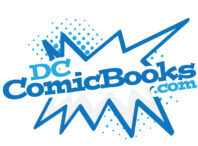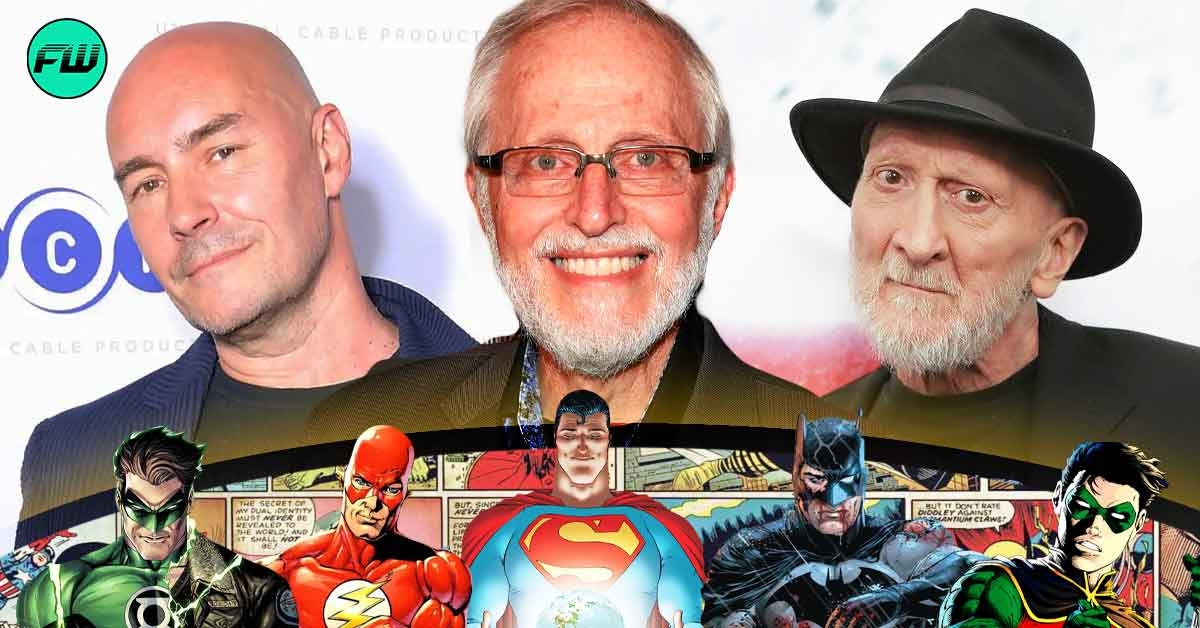In the colorful and captivating world of comic books, where heroes soar, villains plot, and alternate universes collide, a select few writers stand as towering giants. These are the visionaries who have reshaped the very fabric of the comic book medium, breathing life into iconic characters, crafting timeless narratives, and challenging the boundaries of imagination. Join us on an exhilarating journey through the hallowed halls of comic book history as we unveil DC’s top 10 most influential comic book writers. From the mind-bending tales of cosmic creation to the gritty streets of Gotham, these writers have left an indelible mark on the genre, forever shaping the way we perceive heroes, legends, and the art of storytelling.
Gardner Fox
Gardner Fox’s influence in the comic book industry is profound, particularly due to his role in co-creating the Justice Society of America (JSA) in All-Star Comics #3 (1940). This superhero team-up concept laid the foundation for the superhero team dynamics that continue to be a staple in the industry today. Additionally, Fox played a key role in introducing the concept of the Multiverse in The Flash #123 (1961) with the famous story The Flash of Two Worlds. This concept allowed for the existence of multiple Earths and different versions of DC’s characters, paving the way for countless crossover events and storylines in the decades that followed.
Jerry Siegel and Joe Shuster
The creators of the very first superhero, Superman was the first true superhero and set the template for the superhero genre, establishing many of the conventions and tropes that continue to be used in comics today. Siegel and Shuster’s creation paved the way for the Golden Age of comics and the superhero boom that followed. Superman’s success also led to the creation of other enduring characters, such as Batman, Wonder Woman, and The Flash, as the superhero genre expanded. Superman’s enduring appeal has transcended generations, and he remains a cultural icon, appearing in comic books, films, television series, and various forms of media for over eight decades.
Marv Wolfman
Wolfman’s work on The New Teen Titans redefined the superhero team dynamic, focusing on the personal lives and relationships of the characters as much as their superhero adventures. This approach has since become a hallmark of modern superhero storytelling. In addition to his work on Teen Titans, Wolfman contributed to other iconic DC titles, including Crisis on Infinite Earths, a groundbreaking maxi-series that reshaped the DC Universe by streamlining its multiverse into a single continuity. Crisis on Infinite Earths, had a profound impact on DC Comics by simplifying its complex continuity and laying the groundwork for future crossover events. It set the standard for universe-spanning events in comics, a trend that continues to this day.
Denny O’Neil
Perhaps best known for his work on Batman, where he, along with artist Neal Adams, revitalized the character in the early 1970s. Their collaboration on Batman stories brought a darker and more realistic tone to the character, moving away from the campy style of the 1960s TV series. O’Neil also worked on other iconic DC characters, including Green Lantern and Green Arrow, where he addressed socially relevant issues of the time in groundbreaking stories. His work on Green Lantern/Green Arrow tackled themes such as drug addiction, racism, and environmentalism, making these characters more socially conscious and relevant. Playing a pivotal role in demonstrating that comics could be a platform for addressing important societal issues while still entertaining and engaging readers.
Scott Snyder
Snyder’s run on Batman, in collaboration with artist Greg Capullo, explored the character’s mythos in depth. His storytelling was marked by intricate plots, character-driven narratives, and a deep understanding of Batman’s psychology. His work on Batman, characterized by its dark and intricate storytelling, helped to maintain the character’s status as one of DC’s flagship heroes. Dark Nights: Metal showcased Snyder’s ability to push the boundaries of superhero storytelling, exploring complex multiverse concepts and delivering epic, cosmic-scale narratives. The event had a lasting influence on the DC Universe and opened up new storytelling possibilities. His work only heightened the popularity of Batman while also expanding the DC Universe’s mythos.
Jack Kirby
While known for significant influences at both Marvel and DC Comics. At DC Comics, Kirby created the Fourth World saga, a series of interconnected titles that introduced characters like Darkseid, Mister Miracle, and the New Gods. This epic storyline delved into themes of mythology, good vs. evil, and cosmic adventure, and it has left a lasting mark on the DC Universe. Kirby’s use of grand cosmic themes and his creation of larger-than-life villains like Darkseid influenced subsequent generations of writers and artists, inspiring them to explore more ambitious and epic storytelling. Kirby’s distinctive art style, characterized by dynamic action sequences, bold composition, and imaginative technology and architecture, set him apart as a visionary artist in the industry.
Frank Miller
Particularly known for his contributions to the “grim and gritty” movement in the 1980s. His work on Batman in The Dark Knight Returns and Batman: Year One, helped redefine the character and ushered in an era of darker, more psychologically complex superhero storytelling that was established by O’Neil. Miller’s storytelling style, characterized by its hard-edged narratives, moral ambiguity, and noir sensibilities, had a lasting impact on the medium. Many creators have drawn inspiration from his approach to character-driven storytelling and visual storytelling techniques. His impact extends beyond comics, as his work has been adapted into successful films and has had a lasting influence on the portrayal of superheroes in popular culture.
Grant Morrison
Morrison’s run on JLA redefined the Justice League, emphasizing the god-like qualities of its members. He crafted epic, cosmic-scale stories that explored themes of heroism, morality, and the responsibilities of power. Morrison’s approach elevated the Justice League to a new level of prominence within the DC Universe. Meanwhile, Final Crisis is a complex and ambitious crossover event. Delving into the nature of storytelling and the concept of the multiverse. However, All-Star Superman is considered one of Morrison’s masterpieces. It reimagines Superman as a character facing his own mortality. The series explores themes of heroism, sacrifice, and the essence of Superman’s character, emphasizing the core values that make him an enduring symbol of hope.
Geoff Johns
The importance of Geoff Johns’ work in DC Comics lies in his ability to rejuvenate and modernize classic characters and franchises, infusing them with depth and relevance. His storytelling emphasized the legacy of the Flash mantle and introduced the concept of the Speed Force, which has become a fundamental element of the character’s mythology with the iconic story The Flashpoint Paradox. While action-packed stories like Blackest Night featured numerous iconic characters and introduced the concept of the Black Lantern Corps. While also creating stories with massive implications with his run on Justice League and the storyline of The Darkseid War.
Alan Moore
Alan Moore’s significance in comic books is marked by his ability to elevate the medium to a higher level of artistic and literary recognition. His work, particularly Watchmen, helped legitimize comics as a serious form of literature, leading to a greater acceptance of the medium by mainstream audiences and academia. Moore’s storytelling, which often challenges societal norms and questions authority, has resonated with readers seeking thought-provoking and intellectually stimulating narratives. In summary, Alan Moore’s work, influence, and significance in comic books are defined by his ability to push the boundaries of the medium, challenge conventional storytelling, and engage with complex and thought-provoking themes. He is considered one of the most influential and revered writers in the history of comics.
For more content from FandomWire, check out our LinkTree!
Join us on an exhilarating journey through the hallowed halls of comic book history as we unveil DC’s top 10 most influential comic book writers. Read More

